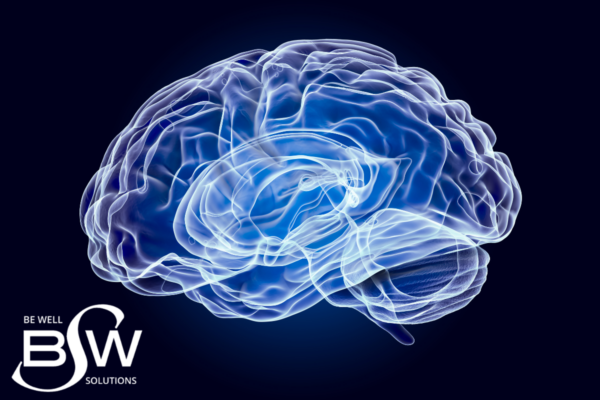The brain is the most complex structure known to man. Although it weighs only a bit over three pounds, the brain is composed of more than 100 billion nerve cells (neurons) that play the central role in processing information, determining our thoughts and perceptions, coordinating bodily functions, and storing our precious memories. It’s no wonder the brain was termed “The Three Pound Universe” by noted author Judith Hooper.
Brain health is a critical component of healthy aging, and one that we stress often at Be Well Solutions. Cultivating a healthy brain should be a lifelong objective for all of us.
Brain Development
Brain development begins during pregnancy, and a healthy pregnancy properly nurtures the developing brain. Appropriate prenatal care helps ensure proper nutrition for the developing brain, as well as avoidance of toxins and infections that can affect brain development.
Unlike other organs, whose function doesn’t change much after birth (for example, our heart and kidneys work essentially the same throughout our lives), the infant brain is not fully developed. For the next two decades or more, our neurons form hundreds of thousands of connections as we gain knowledge and mature.
Before the 21st century most researchers believed a baby’s brain development was genetically predetermined. We know now that is not the case – early experiences have a massive impact on brain development. These early experiences play critical roles in the neural connections that determine emotional reactions and reflexes. Healthy brain development depends on proper nurturing, teaching, tolerance, and support throughout childhood and adolescence.
Adult Strategies for Brain Health
Most avoidable brain issues for healthy adults center around 3 significant categories:
- Trauma – brain injuries are life changing events. This applies to both physical injuries and traumatic experiences. On the physical side, wearing appropriate protective gear during high impact activities such as cycling, climbing or contact sports is paramount. Monitoring head injuries in high-school athletes has become part of all coaching certifications. Binge drinking is also associated with an increased risk of traumatic brain injuries. Finally, gun safety is a critical piece of avoidable traumas and injury.
- Toxins – exposure to illegal drugs and excess alcohol can cause permanent brain injury during adolescence and adulthood. Unmanaged stress causes toxins, such as cortisol, to accumulate and damage brain cells. Other substances that can impact brain health include industrial chemical exposures and several of the 500+ toxins delivered by a lighted cigarette. For a detailed (and complex) review of toxins and brain development, see this Annual Review of Public Health[1].
- Vascular Problems – neurons are specialized cells that depend on a constant supply of blood. Despite accounting for less than 2% of our total body weight, the brain requires more than 15% of total blood flow. Therefore, any condition that impairs the heart’s ability to provide blood to the brain will impact our brain function. Proper exercise habits, lifelong control of blood pressure, a diet rich in fruits, vegetables, and whole grains, and avoiding added sugar helps ensure good circulation to the brain and other vital organs. For an overview of a heart healthy lifestyle, check out this article from the National Institutes of Health[2].
Dementia
Dementia is a condition that is characterized by impaired memory and other cognitive (thinking) functions. Dementia profoundly affects understanding and judgement and impacts one’s capacity to live independently. Common illnesses that cause dementia include Alzheimer’s’ Disease, Lewy Body Disease, and strokes (vascular disease).
Tragically, these conditions still have poor outcomes, although effective treatments may be on the horizon. A new medication that slows the course of Alzheimer’s Disease has recently been brought to market. Since these types of medications only slow the course of dementia and don’t reverse it, early recognition and prompt treatment are key factors for a better prognosis.
If you suspect a relative is experiencing signs of dementia, check out the resources listed elsewhere in today’s newsletter including consulting a primary care physician, Employee Assistance Program (EAP) or community health agency. For more information on resources to establish a strategy to deal with a dementing illness, check out the resources at Alzheimers.gov[3].
Continue Reading August 2023 Newsletter: Fruits and Veggies are Good Medicine

